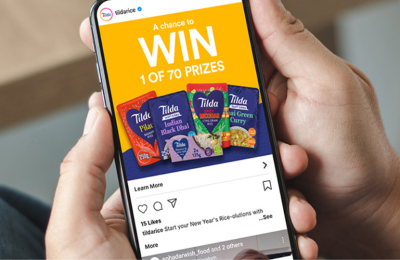Brands need to prove they’re Mr. Right, rather than just another Tinder guy, or risk ruining their already fragile relationship with the increasingly sceptical consumer, says Francesca Zedde from Sense
A while ago, one of my friends went on Tinder looking for a guy to start a relationship with. One of the first she swiped right turned out to be ‘the perfect guy’: smart, good looking, caring, attentive…
They started dating almost immediately after the first message and for 10 days she lived in a dream. He said he felt a special connection with her, and that he wanted to take her on holiday and introduce her to his family.
It all seemed fabulous. A little too fabulous, according to her sceptical friends.
Then suddenly the house of cards came crashing down. From one day to the next he completely disappeared, saying he was not ready for any commitment and blocked her on all platforms. What had been apparent from the first day to all her friends became clear to her too: all the things that he told her were just a bunch of lies ‘to get the girl’. No honesty, no authenticity.
So, what happened here? Out of naivety or inexperience, my friend believed the story she was told because she wanted it to be true, she wanted to have hope, she wanted to trust. Exactly like when we believe a face cream will get rid of all our wrinkles or that a shampoo will turn our hair into silk. We know those things sound too good to be true, but we still hope they will be.
And what happens when reality doesn’t match our expectations? We are hurt, disillusioned and disenchanted. We don’t want to see that guy ever again and we don’t want to buy that brand.
In 1963 in his book Confessions of an Advertising Man, David Ogilvy wrote: “The consumer is not a moron; she is your wife. You insult her intelligence if you assume that a mere slogan and a few vapid adjectives will persuade her to buy anything.”
Ogilvy’s message was that brands should not start a relationship with people assuming they are morons, trying to trick them with stories that are not true.
When brands over-promise and under-deliver, they are not setting the scene for a meaningful, durable relationship with people. And even if many marketers believe that brands’ success is driven by scale, not ‘love’, a good dose of respect certainly won’t hurt.
The problem for brands is that many have not taken Ogilvy’s advice. As a result, like my friend, people don’t respect them anymore. In fact, according to the Generous Brands report from Sense, they are growing more cynical and sceptical every day.
The study questioned 2,000 UK consumers, with 38% saying they felt more cynical about brands than they did five years ago. Meanwhile, a staggering 92% believed there is a disconnect between what brands say and what they do, with two out of three people calling for brands to be more transparent.
So how can brands start closing this gaping trust gap? Well, they could do worse than listen to their customers, with 86% of respondents to the Generous Brands survey saying brands need to do more to prove what they are about. And they should do this through direct action, rather than through traditional advertising, with people saying they would be four times more likely to trust a brand that does things in the real world.
But consumers’ demands don’t stop there. Half the people surveyed said they wanted brands to show a commitment to solving real world problems. Meanwhile, 70% said they be more likely to support a brand that runs a campaign that has a real, positive impact rather.
So the message is clear. Brands need to be more transparent, honest, authentic and ultimately real. People want their experience of a brand to match their expectations. And they want brands to prove it through action rather than words, which many consumers are finding tend to be rather empty, just like my friend found her Tinder guy.
Unfortunately for my friend, it doesn’t matter to him if he never sees her again. But brands should care if consumers turn against them. If brands want to ‘get the girl and keep her’ they need to prove that they can do more than sweet talking. They need prove themselves in the real world, setting expectations through real actions, not just words.
My friend has learnt her lesson. I hope brands will learn theirs, too.
Francesca Zedde is a planner at real world marketing agency Sense. You can download a free copy of the Generous Brands Report from Sense’s website, www.senselondon.com.






















